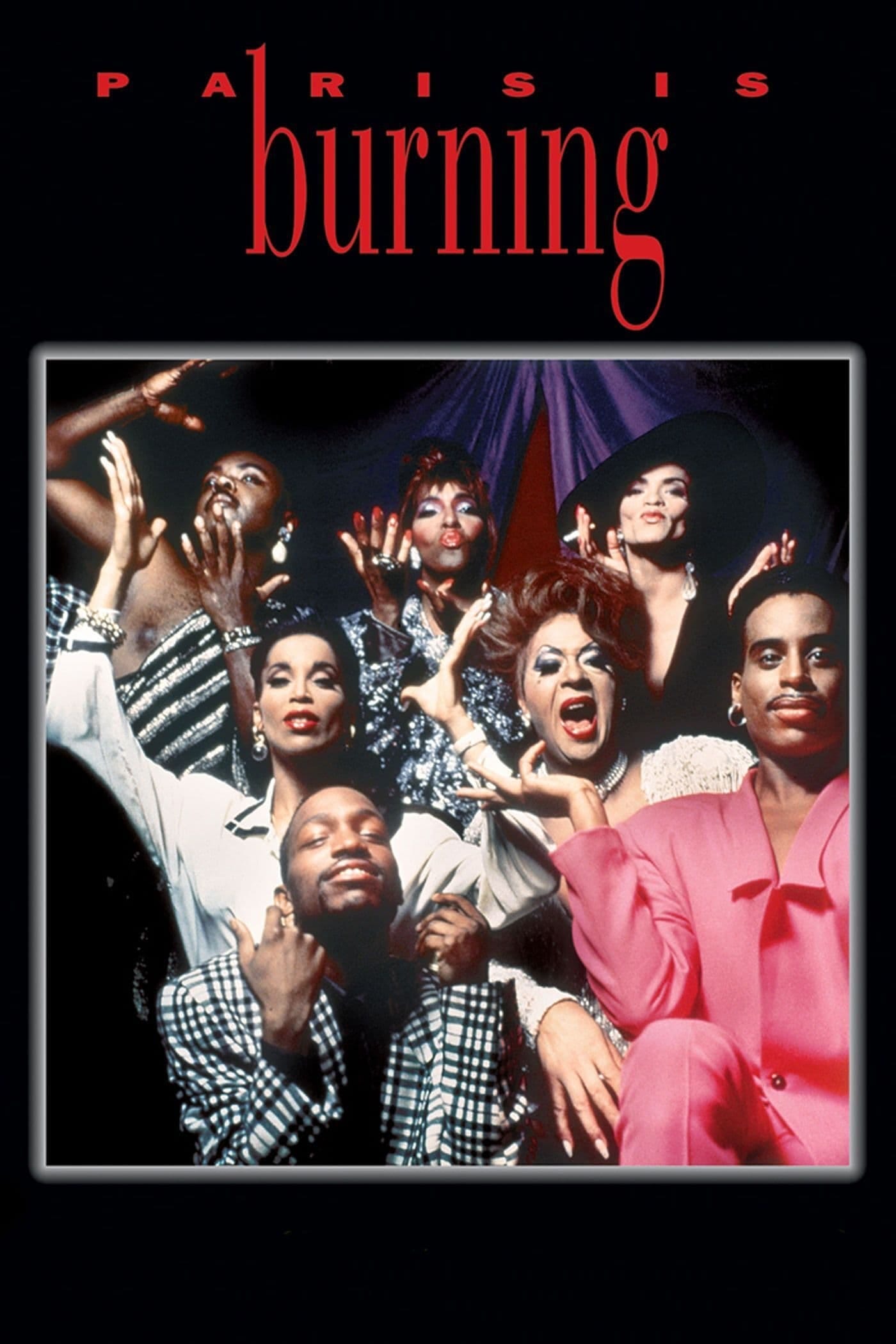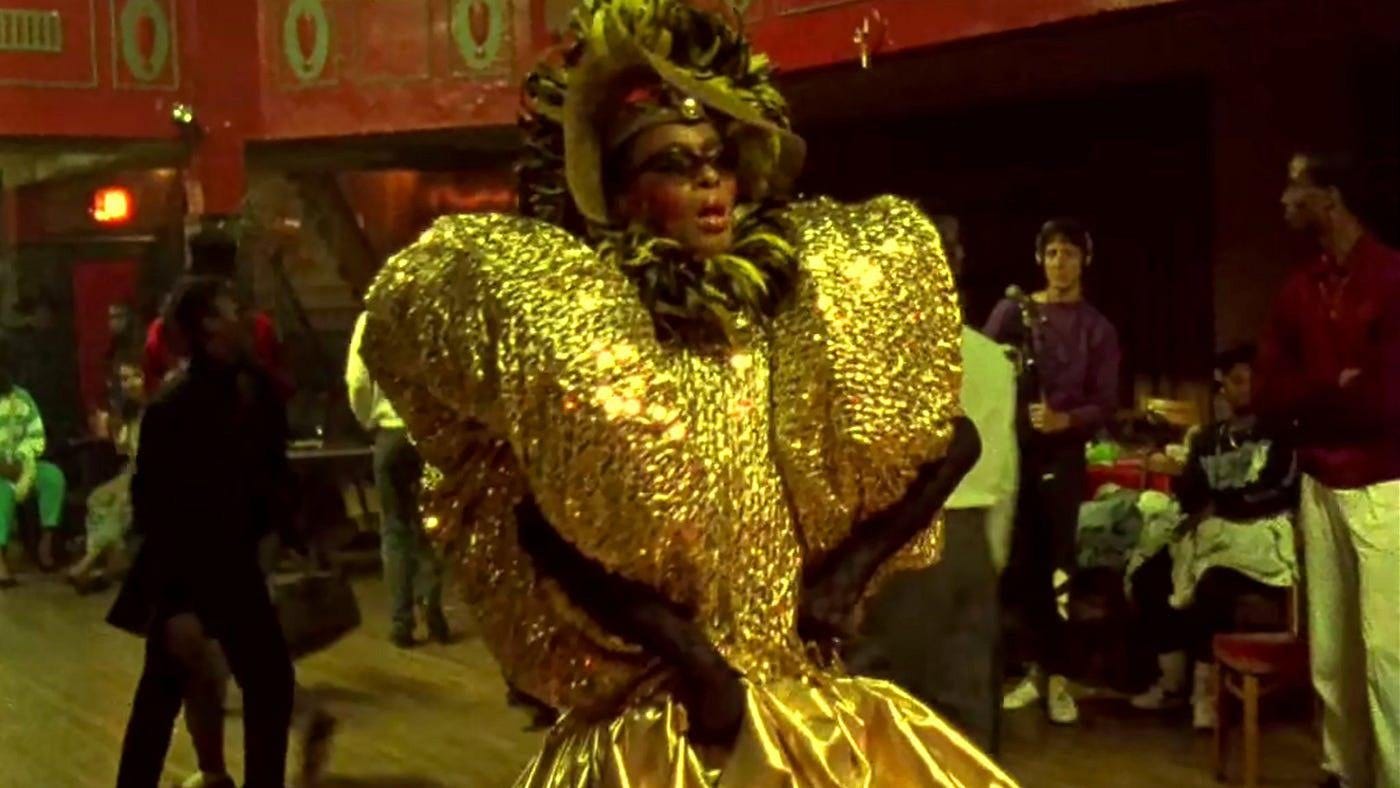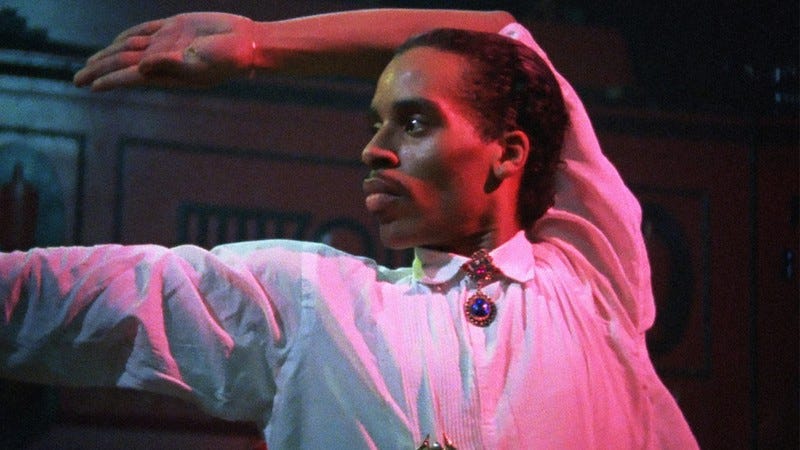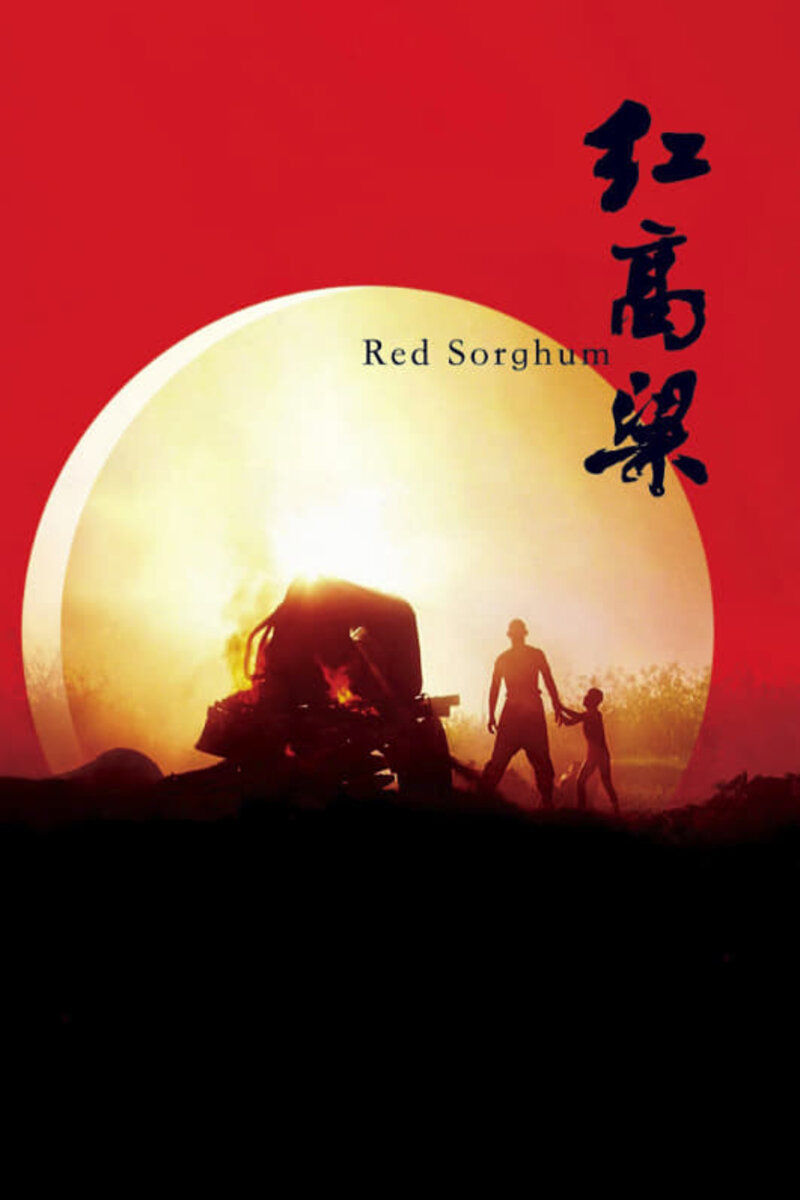Directed by Jennie Livingston
UK & USA, 1990
Sweet dreams are made of this/
Who am I to disagree?/
I travel the world and the seven seas/
Everybody's looking for something
– Eurythmics
We are in New York. It’s 1987. The city lights dazzle the night sky. An advertising hoarding shows the Statue of Liberty. A neon sign announces: ‘White Supremacist Church Begins National Congress’. But the streets are alive, people are dancing, pulsing to a disco beat.
A voiceover cuts through:
“My father told me you have three strikes against you in this world. You’re Black, you’re male, and you’re gay. You’re gonna have a hard fuckin’ time.”
The camera switches to Pepper LaBeija, head of the house of LaBeija, wrapped in a robe of gold. No, this isn’t Dune. This is a documentary, Paris is Burning, and Pepper, drag queen and fashion designer, is making her grand entrance to a Harlem ball.
It's like crossing into the looking glass in Wonderland…
Capturing the scenes of 1980s New York ballrooms, filmmaker Jennie Livingston, shines a light on an underground culture, a weekly ritual where gay and trans men and women reinvent themselves. This is where ‘putting on your glad rags’ takes on a whole new meaning. As well as Pepper we are introduced to a panoply of characters, preening themselves like peacocks before they take to the floor: Dorian Corey, Octavia St Laurent, Venus Xtravaganza, and Willi Ninja. We follow them into a glitter ball world with its own cryptic constitution.
The balls are all about competition, and that competition is heated. The contestants, mostly black, but a mix of gender, sexuality and identity, transform themselves with elaborately detailed costumes to perform in a bewildering range of categories: Virgin Vogue – for beginners, Military, Town & Country, Banjee – ‘looking like the boy who probably robbed you a few minutes before arriving’, and of course Butch Queen First Time in Drag. To win, you have to be the most ‘real’, and the prize is not only the title of ‘Legend’, but an enormous gilt trophy that you get to take home. But what does ‘real’ mean exactly? It means convincing a panel of judges that you are rich, white, and straight. That you can blend. Satirising the American Dream or emulating it? Perhaps both.
And of course, Livingston takes us home with some of the performers, cutting in interviews where the biting wit and an optimistic vision of the future can’t mask the homophobia, racism, and poverty they endure. And given the time, the shadow of HIV/AIDS lingers too quietly in the background. Reality hits hard when the effervescent young trans woman, Venus Xtravaganza, is found dead, strangled in a hotel room during filming. Yet, for some, the documentary is an opportunity. Dance is just one aspect of the balls, but Willi Ninja is the breakout star when he hits the floor and begins voguing, the highly stylised dance that pulls hyper-hieroglyphic poses. His exceptional talent leads to work as a choreographer and featured dancer in music videos.
But, just three years later a New York Times piece tells us:
Paris is no longer burning. It has burned… No one needs to go to a ball to see voguing either, not since Madonna gobbled it up.
But when it comes to underground culture surely it was ever thus? Jennie Livingston herself faced a backlash with claims of cultural appropriation. As a privileged white filmmaker what right did she have to tell these stories? A pertinent question certainly, but one that applies to the documentary form as a whole. Would it have been better if this wild and reckless spectacle of joy and tragedy, this ball, had not been placed on the record? I don’t think so.
Some of them want to use you/
Some of them want to get used by you/
Some of them want to abuse you/
Some of them want to be abused
– Eurythmics
Reids’ Results (out of 100)
C - 76
T - 83
N - 75
S - 74
Thank you for reading Reids on Film. If you enjoyed our review please share with a friend and do leave a comment.
Coming next… Red Sorghum(1988)








